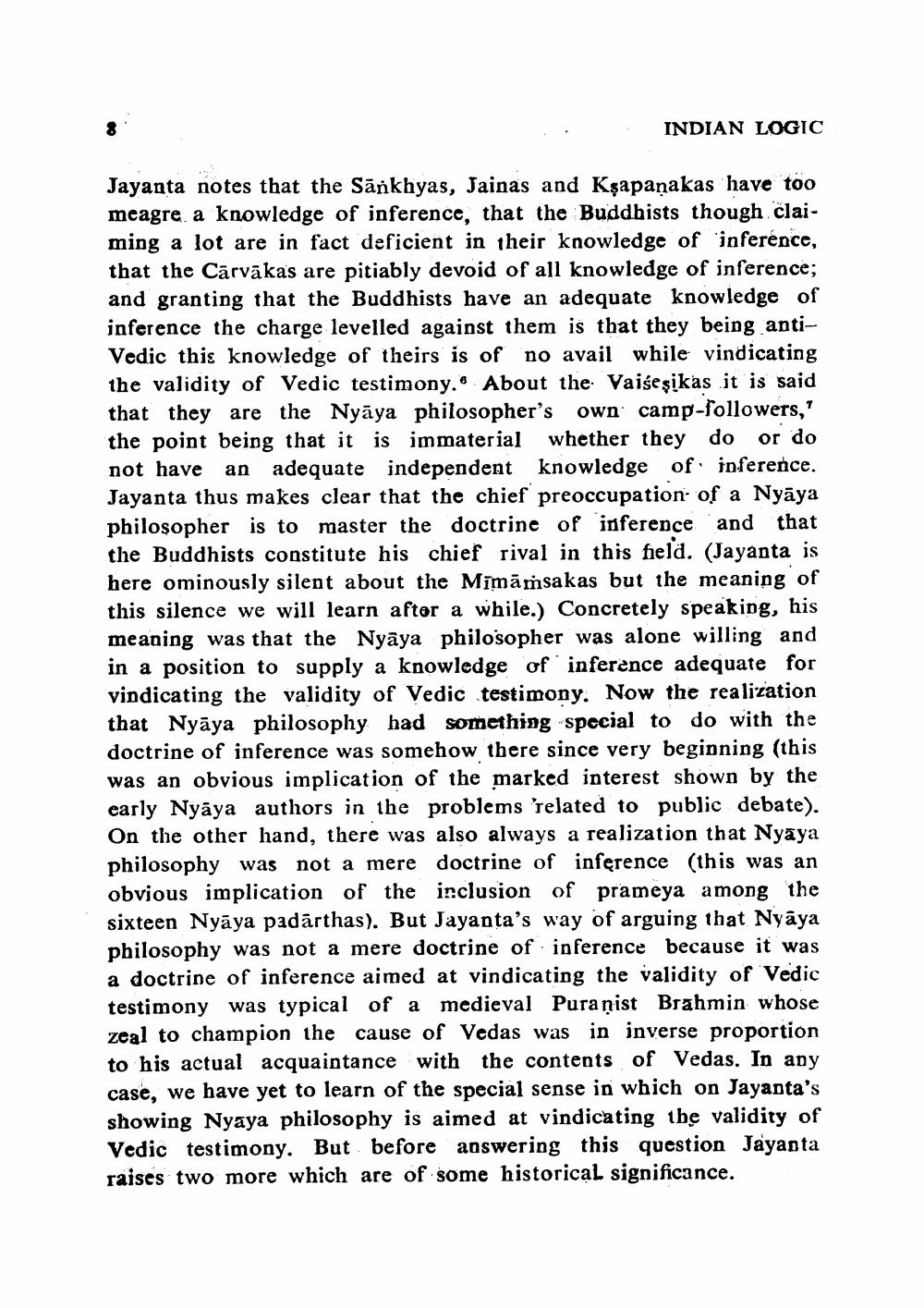________________
INDIAN LOGIC
Jayanta notes that the Sānkhyas, Jainas and Ksapaņakas have too meagre a knowledge of inference, that the Buddhists though claiming a lot are in fact deficient in their knowledge of inference, that the Carvāka's are pitiably devoid of all knowledge of inference; and granting that the Buddhists have an adequate knowledge of inference the charge levelled against them is that they being antiVedic this knowledge of theirs is of no avail while vindicating the validity of Vedic testimony. About the Vaise şikas it is said that they are the Nyāya philosopher's own camp-followers," the point being that it is immaterial whether they do or do not have an adequate independent knowledge of inference. Jayanta thus makes clear that the chief preoccupation of a Nyaya philosopher is to master the doctrine of inference and that the Buddhists constitute his chief rival in this field. (Jayanta is here ominously silent about the Mimāṁsakas but the meaning of this silence we will learn after a while.) Concretely speaking, his meaning was that the Nyāya philosopher was alone willing and in a position to supply a knowledge of inference adequate for vindicating the validity of Vedic testimony. Now the realization that Nyāya philosophy had something special to do with the doctrine of inference was somehow there since very beginning (this was an obvious implication of the marked interest shown by the early Nyāya authors in the problems related to public debate). On the other hand, there was also always a realization that Nyaya philosophy was not a mere doctrine of inference (this was an obvious implication of the inclusion of prameya among the sixteen Nyāya padārthas). But Jayanta's way of arguing that Nyaya philosophy was not a mere doctrine of inference because it was a doctrine of inference aimed at vindicating the validity of Vedic testimony was typical of a medieval Puranist Brahmin whose zeal to champion the cause of Vedas was in inverse proportion to his actual acquaintance with the contents of Vedas. case, we have yet to learn of the special sense in which on Jayanta's showing Nyaya philosophy is aimed at vindicating the validity of Vedic testimony. But before answering this question Jayanta raises two more which are of some historical significance.




